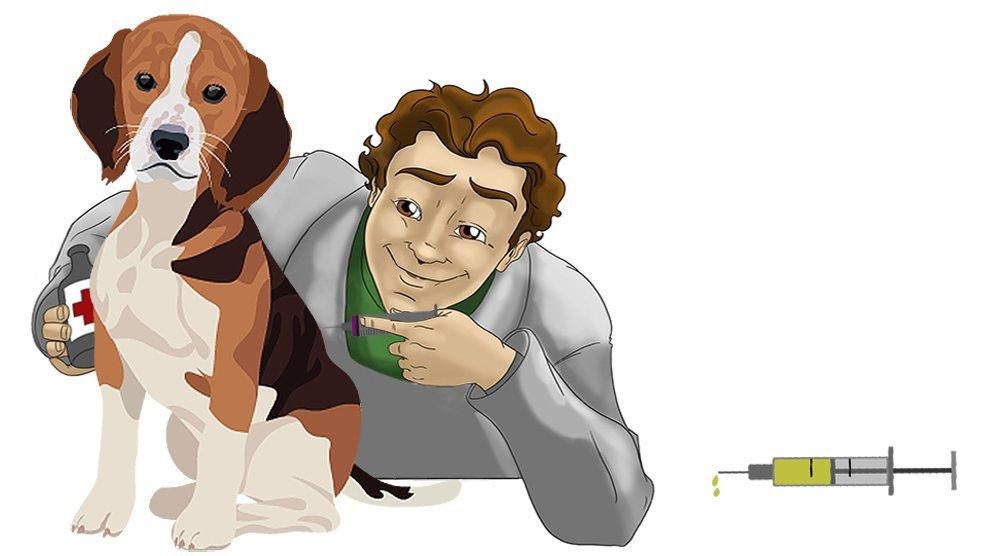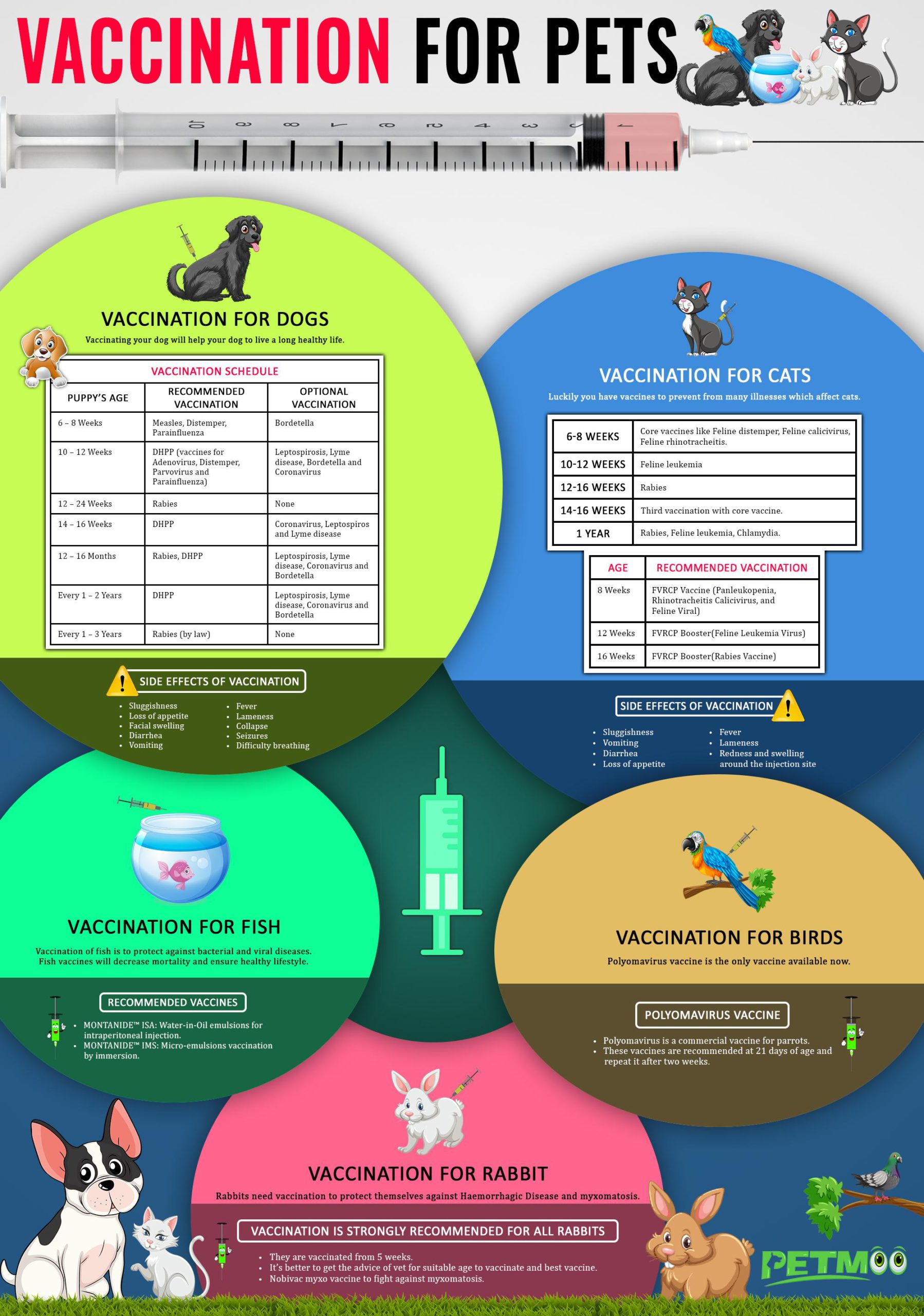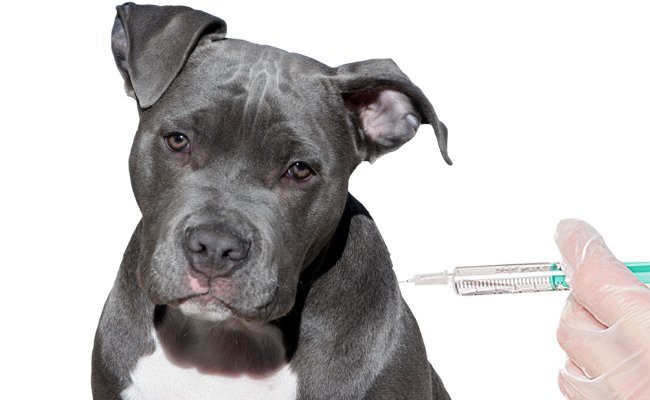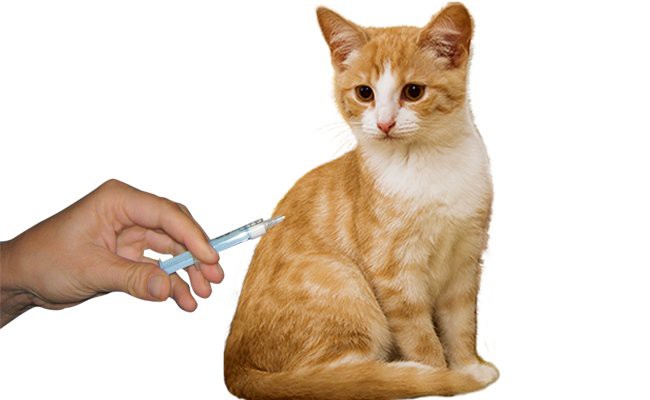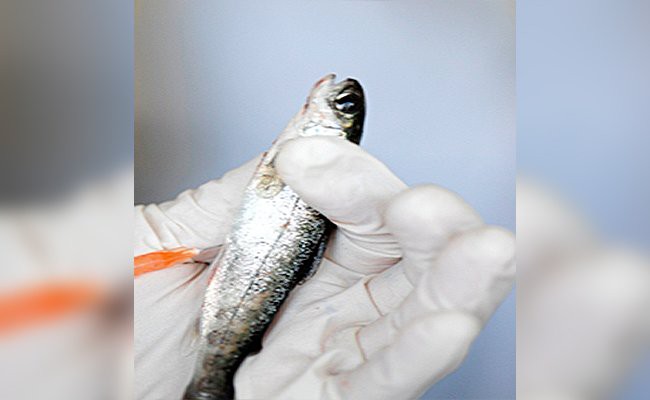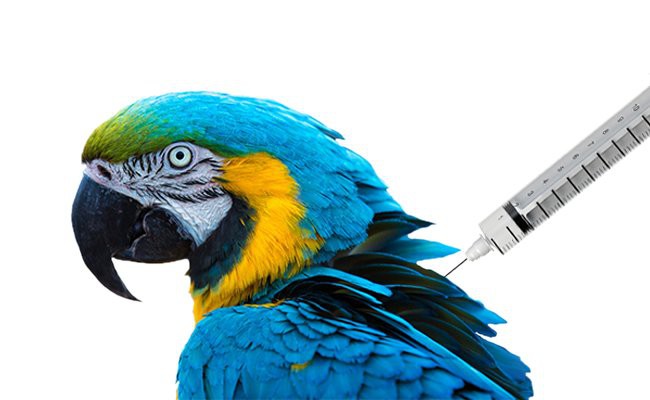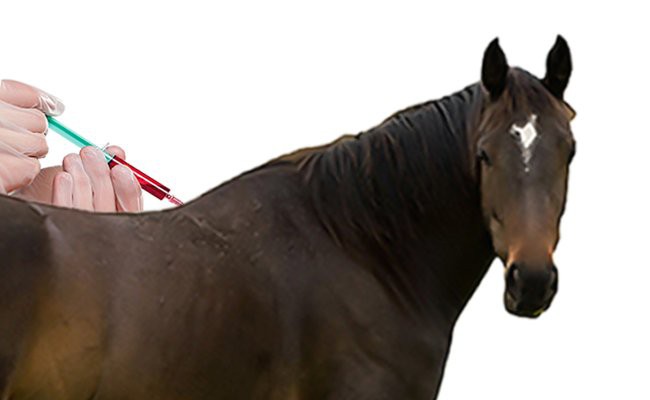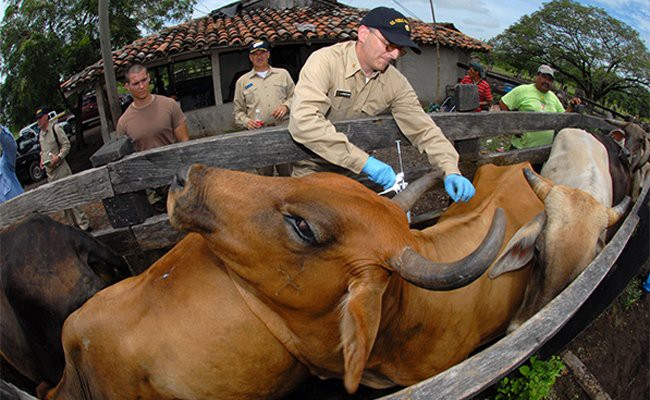Dog Pregnancy Calculator And Timeline
Like humans, pets also require vaccines. In general, vaccination in pets is always a hotly debated topic. When you become an esteemed pet parent, the adoption centre will provide a vaccination timetable; and many would believe that their job is over.
In reality, is it that simple?
As a matter of fact, with our pets, many pet owners continue giving booster shots in spite these pets move well into their older years.
However, vaccines help to prevent many health issues that affect your pets. Therefore, the most simple yet effective way to remain on track with vaccinations is to just follow the instructions of a vet you know well.
What is a vaccine exactly?
Vaccines are healthy products designed to produce strong immune responses and stimulate the immune system to safeguard future infections. Normally, vaccines trigger the pet’s immune system production of powerful antibodies that prevents and kills disease-causing organisms.
Overall, vaccines provide protection against numerous diseases that can stop or reduce certain diseases completely.
Vaccination In Dogs
In reality, vaccination is a process that contains benefits and risks that must be considered for every puppy and dog proportionate to his health and lifestyle.
By all means, your vet will decide a vaccination regime that provides the best protection and safest for your puppy and dog.
Core vaccines:
- Core vaccines are considered for all dogs based on the severity of disease, a risk of exposure and transmissibility to humans.
- Distemper, canine parvovirus, rabies and canine hepatitis are some of the core vaccines.
Non-core vaccines:
- It depends upon dog exposure risk.
- These vaccines guard your dogs against Borrelia burgdorferi, leptospira bacteria and Bordetella bronchiseptica.
Puppy vaccination schedule:
| Puppy’s Age | Recommended Vaccination | Optional Vaccination |
|---|---|---|
| 6 – 8 weeks | Measles, distemper, parainfluenza | Bordetella |
| 10 – 12 weeks | DHPP (vaccines for adenovirus, distemper, parvovirus and parainfluenza) | Leptospirosis, lyme disease, bordetella and coronavirus |
| 12 – 24 weeks | Rabies | None |
| 14 – 16 weeks | DHPP | Coronavirus, leptospiros and lyme disease |
| 12 – 16 months | Rabies, DHPP | Leptospirosis, lyme disease, coronavirus and bordetella |
| Every 1 – 2 years | DHPP | Leptospirosis, lyme disease, coronavirus and bordetella |
| Every 1 – 3 years | Rabies (by law) | none |
Average price range of vaccination in dogs:
- The average cost varies between – USD $ 75 to USD $ 100. This list includes all the core vaccines for the period- 6 +, 12+, and 16+ weeks
- The core vaccines are – DHLPP (distemper, hepatitis, leptospirosis, parvo, and parainfluenza)
- Rabies vaccine – USD $ 15 to USD $ 20
Are any vaccines suggested by law?
In fact, each state has designed their own laws governing the decision of this rabies vaccine. In some areas, annual rabies vaccination is recommended.
However, in certain areas, vaccines are required once in three years. But, a latest canine rabies vaccination looks a must in every sense.
Rattlesnake Vaccine for Dogs:
- This vaccine is specifically designed by red rock biologics, to produce antibiotics against western diamondback rattlesnake venom.
- It is effective against snakes with similar venoms, like timber rattlesnake, sidewinder and copperhead.
- It does not protect against coral or water moccasin’s snakes venom.
Is there any risk associated with vaccines?
- In order to protect from similar infection, immunization mildly stimulates the dog’s immune system.
- This may create symptoms like allergic reaction and soreness.
- Like any other medical procedure, there are always some chances of your dog catching any side effect.
Side effects of vaccination:
Vaccine reactions may be short-lived and minor, which may require immediate care of a veterinarian. There are some clinical signs which include,
- Sluggishness
- Loss of appetite
- Facial swelling
- Diarrhea
- Vomiting
- Fever
- Lameness
- Collapse
- Seizures
- Difficulty breathing
Vaccination In Cats
Luckily, we have plenty of vaccines to stop many illnesses that trouble cats. Not only are different vaccines available for different diseases, there are various combinations and types of vaccines.
Your vet will determine a regime that provides the best and safest protection for your individual pet cat.
Cat and kitten vaccination schedule:
| Age | Recommended Vaccination |
|---|---|
| 6-8 weeks | Core vaccines: Feline Distemper, Feline Rhinotracheitis. |
| 8 Weeks | FVRCP Vaccine (Panleukopenia, Rhinotracheitis Calicivirus and Feline Viral) |
| 10-12 Weeks | Feline Leukemia |
| 12 Weeks | FVRCP Booster(Feline Leukemia Virus) |
| 16 Weeks | FVRCP Booster(Rabies Vaccine) |
| 1 Year | Rabies, Feline Leukemia, Chlamydia |
The average price range of vaccination in cats:
- 6 to 8 weeks – FVRCP (distemper), Pyrantel (deworming) – USD $ 31 onwards
- 9 to 12 weeks – FeLV, FVRCP, Pyrantel – USD $ 54 onwards
- 12 weeks to 6 months – Rabies, FeLV, Pyrantel, FVRCP – USD $ 69
Noncore vaccines for cats:
These noncore vaccines depend upon individual cat’s lifestyle risk and benefit assessment.
Side effects of vaccination:
Some cats show ill effect due to vaccination. Clinical signs include,
- Sluggishness
- Vomiting
- Diarrhea
- Loss of appetite
- Fever
- Lameness
- Redness and swelling around the injection site
Vaccination For Snakes
There is good news for snake owners. In fact, Snakes do not catch diseases like rabies or parvo. Most of the snake pets live an isolated life.
My pet snake appears very healthy. Does he need regular vet check-up?
Within 48 hours, ensure that your pet snake is checked by a qualified vet. The visit means the snake’s parameters such as weight, bumps, lumps, and all external parasites are thoroughly examined.
In addition, the pet snake will be investigated for malnutrition and dehydration. The oral cavity will also be examined for symptoms of mouth rot. Furthermore, faecal tests determine any signs of internal parasites if present.
Moreover, snakes normally do not require any vaccines but they may need other check-ups like X-rays, culture test, and blood test.
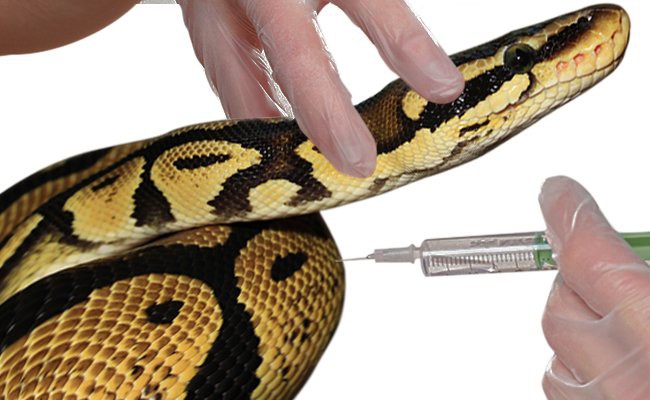
Do snakes need the vaccine?
- Snakes do not transmit any communicable diseases. Accordingly, there is no need of any vaccines for your snake pet.
- If they fall ill, then contact your veterinarian immediately.
5 Great Pet Snakes:
- Corn snake
- Ball python
- Gopher snake
- California kingsnake
- Rosy boa
Vaccination For Fish
Vaccination of fish is to protect against bacterial and viral diseases. Fish vaccines will decrease mortality and ensure the healthy lifestyle.
Before vaccination, you should consider several criteria such as a type of antigen, fish species, immune response kinetics, vaccine administration route and type of immune response like cellular or humoral.
Immersion vaccination
Skin gills and epithelium have techniques to safeguard fish in a broad way. This type of vaccination works on the capacity of mucosal organisms to identify pathogens they were in contact with.
When the fish gets immersed in water having the diluted vaccine, the fish’s gills and skin will absorb the same.
There are two types in immersion vaccination method
- In the dip, vaccination techniques mean the one where the fish is immersed in a vaccine tank.
- In bath vaccination technique, they are exposed to the vaccine solution for a long period of time.
Oral Vaccination
With this type of vaccination, the vaccines are either mixed or bio-encapsulated. In general, bio-encapsulation is preferred where fish fry requires vaccination. In this case, rotifers, copepods, Artemia nauplii are kept in a vaccine.
The main advantage of oral vaccination is the fact that it’s very easy to administer. On the other hand, the oral vaccines offer very less stability once combined with the feed.
Injection Vaccination
Normally, fish lovers avoid injection vaccination because the stress from this technique could cause high mortality.
In contrast, studies conducted by industry experts have confirmed that the mortality rate connected with the vaccination is quite less.
Two recommended vaccines:
Two recommended fish vaccines which are vital for a fish’s overall growth include-
- MONTANIDE™ ISA: Water-in-Oil emulsions for intraperitoneal injection.
- MONTANIDE™ IMS: Micro-emulsions vaccination by immersion.
All the identifications of MONTANIDE™ are used in vaccination to protect from fish diseases like,
- Furunculosis
- Yersinia
- Pasteurellosis
- Vibriosis
- Streptococcus
- Aeromonas
Vaccinations For Birds
In general, polyomavirus is regarded as one of the most common viral infections that affect birds. A blood test can determine the presence of this virus. However, there is no proper cure for this disease.
Can polyomavirus be controlled or cured? The most popular method for managing avian polyomavirus infections is via effective and safe vaccine.
What birds need vaccination?
- Some of the birds that are admitted to polyoma are,
- Younger bird
- Macaws
- Caiques and etc.
Vaccines:
- Polyomavirus is a commercial vaccine for parrots.
- This vaccine is recommended at 21 days of age and repeats it after two weeks.
- It is a yearly vaccine.
Side effects of polyomavirus in birds:
- Vomiting
- Diarrhea
- Loss of appetite
- Dehydration
- Weight loss
- Tremors
- Paralysis
- Bleeding below the skin
- Excessive urination
- A swollen abdomen
- Feather abnormalities
- Regurgitation
Vaccinations For Rabbit
Rabbits need vaccination to protect themselves against hemorrhagic disease and myxomatosis.
These diseases are known to cause intense suffering in rabbits.
Vaccination is strongly recommended for all rabbits.
Benefits of vaccines in rabbits:
- Give regular boosters
- Decreases the risk of infection by controlling insects.
- Fleas from cats and dogs also affect rabbits. Therefore, keep the rabbit’s enclosure as clean as possible.
Vaccines:
- Nobivac myxo: 5 weeks
- It’s better to get the advice of vet for suitable age to vaccinate and best vaccine.
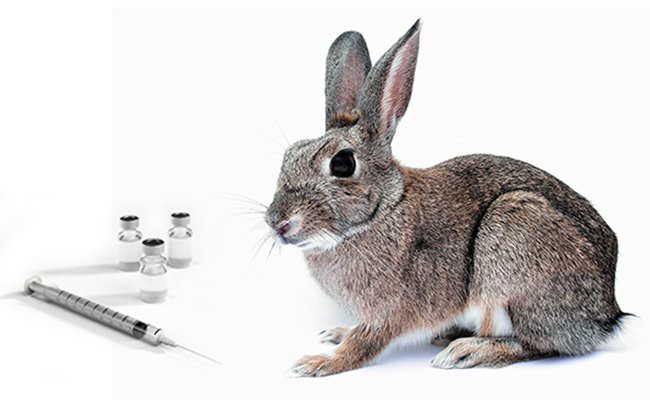
What is Myxomatosis?
- Myxomatosis is a virus spread by mosquitoes.
- It is widely found in British wild rabbits.
Early symptoms of myxomatosis:
- Swelling around ears, face and eyes, which may cause infection around the genitals or anus and also
- Drinking and eating become increasingly difficult.
- High fever.
- Loss of appetite.
How it spreads?
- Insects
- Persists in environment
- Contact between infected rabbits
Vaccinations For Horse
In fact, each and every horse is a separate animal, and hence discuss all your queries with your vet. To start with, horses need vaccination not only to fight against disease and also to maintain its health.
Horse vaccination schedule:
| Disease/Vaccine | Foals And Weanlings | Yearlings | Performance Or Pleasure Horses |
|---|---|---|---|
| Tetanus toxoid | Non vaccinated mare: 3-4 months: first dose 4-5 months: second dose Vaccinated mare: 6 months: first dose 7 months: second dose 8-9 months: third dose | Annual | Annual |
| Venezuelan, Eastern, Equine Encephalomyelitis, Western (WEE,EEE,VEE) | EEE(for high risk area): 3-4 months: first dose 4-5 months: second dose 5-6 months: third dose WEE,EEE(for low risk areas) and VEE: Non vaccinated mare: 3-4 months: first dose 4-5 months: second dose 5-6 months: third dose Vaccinated mare: 6 months: first dose 7 months: second dose 8 months: third dose | Annual, spring | Annual, spring |
| Influenza | Inactivated injectable: Non vaccinated mare: 6 months: first dose 7 months: second dose 8 months (then at 3 month interval): third dose Vaccinated mare: 9 months: first dose 10 months: second dose 11-12 months(then at 3 month interval): third dose | Every 3-4 months | Annual |
| Influenza | Intranasal modified live virus: 11 months: first dose(as per vets advise) | Every 6 months | Every 6 months |
| Rhinopneumonitis (EHV-1 and EHV-4) | 4-6 months: first dose 5-7 months: second dose 6-8 months: third dose | Every 3 to 4 months | Performance horses: 3-4 months yearly Pleasure horses: Optional: semi-annual |
| West Nile Virus | 3-4 months: first dose 1 month later: second dose 6 months: third dose | Annual booster(depends on risk) | Annual booster(depends on risk) |
| Strangles | Injectable: 4-6 months: first dose 5-7 months: second dose 7-8 months: third dose 12 months: fourth dose(depends upon product) Intranasal: 6-9 months: first dose After 3 weeks: second dose | Semi-annual | Optional: semi-annual |
| Botulism (inactivated type B toxoid) | vaccinated mare: 2-3 months: at 30 days interval 3 dose series of toxoid non-vaccinated mare: consult your vet | consult your vet | consult your vet |
| Potomac Horse Fever | 5-6 months: first dose 6-7 months: second dose | Semi-annual | Semi-annual |
| Equine Viral Arteritis | 6-12 months: one dose | Annual for colts | Annual for colts |
| Rotavirus A | To develop antibodies | Not applicable | Not applicable |
| Rabies | Consult your vet | Consult your vet | Consult your vet |
Examples of Combination or Recommended Vaccines
- Western and Eastern Encephalomyelitis + Tetanus toxoid
- Western and Eastern Encephalomyelitis + Influenza virus + Tetanus toxoid
- Western and Eastern Encephalomyelitis + EHV-1 + Influenza virus + Tetanus toxoid
- Influenza virus + EHV 1 (rhinopneumonitis)
- Use approved ones for protecting pregnant mares
Vaccinations For Cow
Vaccination will help your cow to fight against infectious diseases in cattle and dairy, and it includes pneumonia, Bluetongue, salmonella and ringworm.
1. Core Vaccines
- These include Leptospirosis, BRSV, BVD, PI3, and IBR vaccines.
- Main purpose- These vaccines safeguard cows against BVD, pneumonia, and abortion.
Killed vaccines
- Sentry 9 Somnugen
- Triangle 9
Modified Live Vaccines
- Vista 5 L5 SQ
- Express 10
Overall, the histophilus and leptospirosis components are destroyed by giving these vaccines.
2. Vaccination Protocol
Killed vaccines
- Totally safe for consumption in non-pregnant and pregnant cows
- Needs at least 2 injections
- In each year, a single injection provides the much-needed immunity
- The recommended dose is around 5cc
- Milk withdrawal – 0 days
- Slaughter withdrawal- 21 days
3. Modified Live Vaccines
- The label recommends this vaccine in a non-pregnant animal only. On the other hand, Express 10 is mentioned as totally safe in pregnant cattle.
- For the safe reason, immunization should happen about 2 weeks right before the breeding season.
- The label suggests a Leptospirosis and BRSV booster of the vaccine.
- In each case, a single injection improves the immunity
- The normal dose is around 2cc per cow.
- Milk withdrawal – 0 days
- Slaughter withdrawal – 21 days
Vaccination Schedule For Cattle And Buffaloes:
| Disease | Age At First Dose | Booster Dose | Subsequent Dose |
|---|---|---|---|
| Foot and Mouth Disease | 4 months and above | 1 month after | Six monthly |
| Haemorrhagic Septicaemia | 6 months and above | - | Annually |
| Black Quarter | 6 months and above | - | Annually |
| Brucellosis | 4-8 months of age (only for female calves) | - | Once in a lifetime |
| Theileriosis | 3 months and above | - | Once in a lifetime (only for exotic cattle) |
| Anthrax | 4 months and above | - | Annually |
| IBR | 3 months and above | 1 month after first dose | Six monthly |
| Rabies | After suspected bite | 4th day | 90 days after first dose. |
Therefore vaccinations for pets are used for their prevention and for the healthy lifestyle of your pets.

